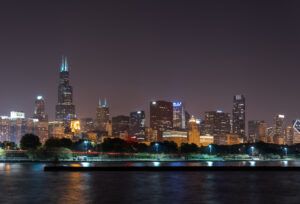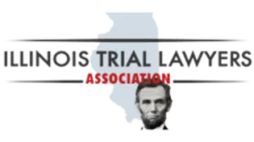What Time Is Curfew in Illinois? Your Guide to State and Local Laws

Date: 04/27/2022
Author: Prime Law Group
Illinois is the state for kids! Nearly 12.7 million people live in Illinois, and 22.2% are under the age of 18.
The state government takes many steps to keep minors safe and learn the law. One step they take is imposing a mandatory curfew across the state. But curfew laws can be a little tricky, and you need to know the facts to avoid penalties.
What time is curfew in Illinois, and what are Illinois curfew laws like? What are the penalties that adults and children face for violating the law? Are there any exceptions to the rules?
Answer these questions and you can follow the law without filling out tickets. Here is your comprehensive guide.
Illinois Curfew Laws
The Illinois Child Curfew Act (ICCA) provides statewide minor curfew rules. A minor commits a curfew offense when they are in any public place or at any establishment during curfew hours.
A public place is any location that the public has access to. Schools, streets, office buildings, and shops count as public places. An establishment is a privately-owned place of business, such as a movie theater or a department store.
Nightly curfew begins at 12:01 a.m. and ends at 6:00 a.m. on Saturdays and Sundays. It also begins at 11:00 p.m. between Sundays and Thursdays and ends at 6:00 a.m. on the following days.
The ICCA applies to minors under the age of 17. There is no nightly curfew for 17 year old’s in Illinois.
However, there are statewide curfew rules that apply to drivers who are younger than 18. Teenagers are not allowed to drive between 11:00 p.m. and 6:00 a.m. on Friday and Saturday nights. They are also not allowed to drive between 10:00 p.m. and 6:00 a.m. on weeknights.
Minors are not the only ones who fall under the ICCA. The parents of minors face charges if they allow their children to break the law.
Local Curfew Laws
The ICCA allows cities to pass their own laws. They can modify the times, penalties, and perimeters of the ICCA as they see fit. A city can also adopt the state curfew laws without modifications.
Each town has its own laws, so you should review your local laws before you mount a defense. The Village of Rockton has separate curfew laws for 16 and 17-year-olds than they do for young people. They can stay out until midnight on Saturday and Sunday, while younger teenagers must go home at 11:00.
Waukegan has a similar system. All minors younger than 14 must be home at 9:00, regardless of what day of the week it is. 15 and 16-year-olds must be home at 10:00.
Round Lake imposes a 10:00 curfew for all youths under 15. If the juvenile is in a car, the police can impound the vehicle regardless of who owns it. Fox River Grove’s curfew applies to all minors under the age of 18, though its hours are the same as the statewide law.
While you are in a city or town, you must follow its laws. It does not matter if you are not violating curfew under your own town’s laws.
Penalties
Violating the ICCA carries petty offense weight. A minor may receive a fine between $10 and $500. They do not have to go to prison, though some police departments choose to put minors through the booking process.
Yet most petty offenses do not involve courts or prisons. Once an officer determines a minor is in violation of the laws, they issue a ticket and send the minor home. The minor will need to contact a lawyer and appeal the ticket in order to avoid the penalties.
The parent of a minor faces fines, and the court may require them to perform community service. Their community service cannot conflict with their job, so they can select to perform it on a weekend or during a paid day off.
Judges tend to be more lenient toward first-time offenders. A minor may pay a small fine, and an adult may only receive a warning. If a child violates curfew laws multiple times, the judge may increase the penalties and their parents may face consequences.
Besides curfew violations, a judge may press for additional charges. A child can get charged with trespassing, loitering, or disturbing the peace. These charges carry their own criminal penalties.
Exceptions
Statewide and curfew laws have a long list of exceptions. You can use any exception to launch a legal defense for yourself and avoid legal penalties.
Accompaniment
A child can be in a public space during curfew hours if they are accompanied by an adult. The adult does not have to be standing right next to them, though they should be within shouting distance.
The adult does not have to be the parent or guardian of the child. However, they must be in control of the minor and can take accountability for their actions. The child’s parents should know that they are with an adult, and they should know who the adult is.
Errands
A child can leave home to run an errand, as long as they have permission from their parent or guardian. They cannot leave home unless they have a clear command from their parent to do so.
While a child is on an errand, they cannot make a detour. They are allowed to go into a store or another location to purchase something or talk to someone. However, they should try to leave as soon as possible.
Emergencies
Minors are allowed to evacuate their homes and move to another location during an emergency. An emergency is any occasion that forces the minor to take immediate action to prevent an injury. Fires, natural disasters, and car crashes count as emergencies.
Minors can call the police or fire department to their location in order to get help. Officers will not detain them for curfew violations, though they may ask minors questions about the emergency itself.
Being on the Sidewalk
A child can stand on the sidewalk near their residence. They can perform chores or step outside to get some fresh air.
They can also stand on their neighbor’s sidewalk if the neighbor does not object to their presence. They cannot make excessive noise or gestures that could disturb others.
Employment
A minor can go outside as part of their job. They must be actively working or returning home from work in order to qualify for the exception.
They cannot leave home to look for work or go door-to-door asking for money. As with running errands, they cannot make detours to other locations while working.
Attending an Official Event
Minors are allowed to attend official school, religious, and recreational activities after hours. These activities include parties and artistic performances.
The events they go into must be sponsored by a government agency or a civic organization, such as the police department. They can also go to a school event, or an event run by their church. Adults must be present at the event, and they must take charge of the minors.
Exercising First Amendment Rights
First Amendment rights include the freedom of speech, the right of assembly, and the free exercise of religion. A minor can remain outside to protest an institution or listen to a speech from someone. They can go outside with a group to pray or perform a religious ritual.
A minor does not necessarily need to be with an adult to exercise their rights. However, it is easier to launch a defense against a curfew violation charge if an adult is with them.
Though minors are allowed to violate curfew to protest, they cannot break other laws. An officer can detain them for questioning on a curfew violation charge and then ask them questions about other potential offenses.
Marriage and Emancipation
Married or divorced minors are allowed to leave their homes for any reason. They must provide proof of their marriage or divorce to the police officer who stops them.
Emancipated minors are also allowed to leave their homes, even if they still live with their parents. They must have full and formal emancipation from a judge and a family lawyer. It is not enough for them to live separately from their parents or work their own job.
So What Time is Curfew in Illinois?
Many people have questions about Illinois curfew laws. What time is curfew in Illinois, and what are the penalties?
Minors must be home at 11:00 p.m. on school nights and at 12:01 a.m. on weekends. Most municipalities follow these rules, but some have adopted their own rules.
Both parents and minors may need to pay fines for violations. But there are numerous exceptions, including for running errands and participating in protests.
You can also fight a fine with help from lawyers. Prime Law Group serves Northern Illinois residents. Contact our team today.






